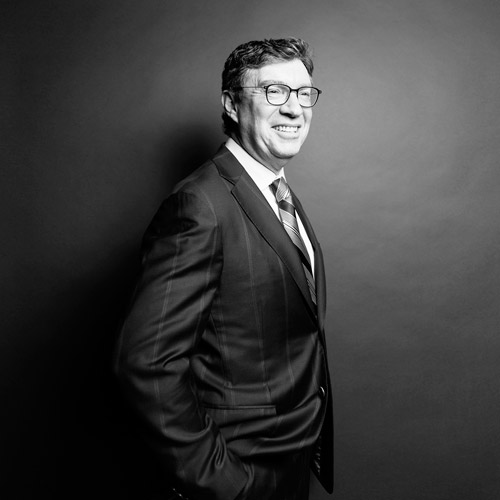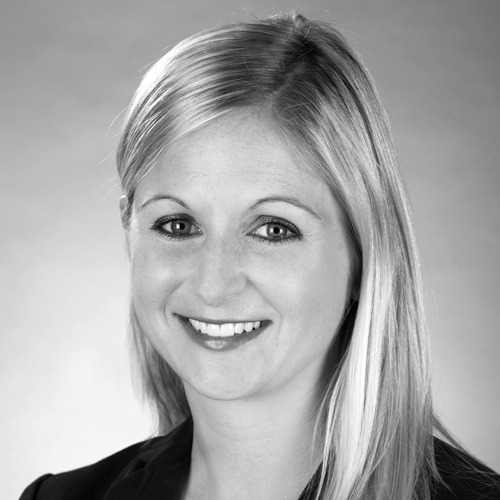Structure has always been a big part of Tim Robb’s life. From his time in the US Army after college to organizing his schedule while working full-time and going to law school at night, Robb is no stranger to the importance of efficiency.

That’s why he was the right person to help NFP, a top ten insurance broker in the United States, transform from a public company to a private one in 2013. As executive vice president and general counsel, Robb oversaw the transition of the New York-based company that handles insurance, brokerage, and financial services for its diverse clients.
After the Reserve Officers’ Training Corps in college, Robb signed up for the US Army and was training to be a field artillery officer during the first Gulf War. “The Army for me was a great experience. It made me much more organized than I was,” Robb says. “It’s cliché to say it gave me discipline, but it
really did.”
He continued to serve in the US Army Reserve on weekends and started working as an assistant managing clerk at a major New York law firm—all while earning his law degree from Fordham University at night. “It was really a challenge,” Robb says. “It was probably the busiest time of my life, but in certain ways it was awesome. I certainly learned to be efficient.”
Robb joined NFP ten years ago after a career in private practice at Simpson Thacher & Bartlett. He got a call from a recruiter and took the interview on a whim. The interview was scheduled with the then-general counsel—who is now the company’s CEO—for an hour.
However, the interview was extended on the spot to the rest of the executive management team, and Robb ended up leaving the office more than six hours after he got there. “I took a leap of faith and jumped for it, and I’m so glad I did,” Robb says. NFP is constantly changing, moving, and growing—something Robb has been on the forefront of in his leadership position.
One of the biggest changes was the decision to take the company private. The move from public to private was one way to accelerate NFP’s growth, according to Robb. “We had some pretty big changes we wanted to make,” he says. “This way, you only have to convince one shareholder rather than many.”
In helping make the shift, Robb had to review the requirements of the company as a publicly held entity and decide if it made sense for a private entity.
One aspect of NFP that Robb decided to keep was its robust compliance infrastructure, which includes a compliance and ethics committee that meets quarterly with all of the senior executives.
“It’s something that you’re not required to do as a private company, but why wouldn’t we keep it in place?” Robb says. “It’s a great discipline to have and it reflects the company’s commitment to compliance from top to bottom.”
He also built an enterprise risk management program from the corporate level to the individual field offices. “The enterprise risk management program has been very eye-opening because it helps us focus on the risks in our company, and how we can mitigate them,” Robb says. “You can’t solve for every risk, but just knowing the program is in place, and actively considering each, is a valuable exercise.”
NFP was built on acquisitions and has acquired hundreds of subsidiaries over the years. Until a few years ago, each of those companies would operate independently under a decentralized NFP structure.
In the past three years, the company has changed its business model to a more traditional acquisition structure. New acquisitions are now required to integrate into NFP’s operations and identity, Robb says. Acquisitions are now more strategic and are generally either folded into existing regional operations or purchased for the purpose of building out a specific region.
“It’s given us an opportunity to integrate offices in ways many of our competitors aren’t doing,” Robb says. “We’re going to be a very different company at the end of this process.”
While integration of the company’s operations and brand is important to building the company and growing its reach, Robb has to look at each acquisition from a risk perspective.
“The NFP name is out there now, and our national reputation and potential legal liability is on the line. We want to make sure that we have the right controls, policies, and procedures in place to help mitigate any risk,” Robb explains. “The best way to do that is to work hand in hand with our colleagues outside of the law department. So it’s also a great opportunity for my team to get really involved in the business side.”
Big goals—such as becoming one of the largest insurance brokers in the world within a decade—were also behind the shift. “At NFP’s size, it’s very hard to continue to organically grow without integration,” Robb says. “You’re not creating as much value when you’re just disparate parts potentially competing against each other with each office marching to the beat of its own drum.”
In the future, everyone at NFP will be under a common brand. “It’s pretty critical,” Robb says of the branding process. “It’s the face of the company—it’s a tent pole for everyone to rally underneath a common tent.”
With so much change happening all the time at NFP, Robb and his team of twenty-four in the legal, compliance, and risk management departments are always looking to not just keep up, but get out in front of the changes.
“I’ve learned that you can’t sit still. You really have to put yourself out there and stay in tune with what’s going on,” Robb says. “Communication has been key to our success, as is having a tight management team.”
Even when he thinks he has a handle on everything, Robb says he is always prepared for the unexpected. “I’ve learned I need to be ready for something new to land on my desk every day. That’s part of what makes my job exciting,” he says. “You have to be nimble. In a dynamic company, you have to build a great foundation of compliance, policies, and people. But you also have to be willing at all times. Otherwise, the organization will change around you, and you’ll become obsolete.”
In the future, NFP will continue to work toward its growth goals, particularly in expanding the property and casualty side of its business. The possibilities are endless, according to Robb. “Insurance is something we’ll always need,” he says. “It’s not going anywhere.”

